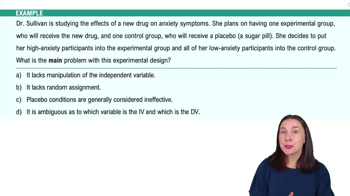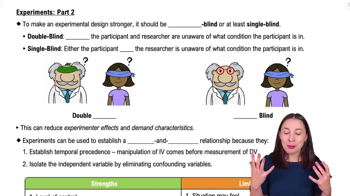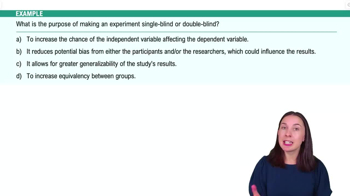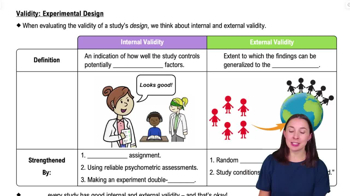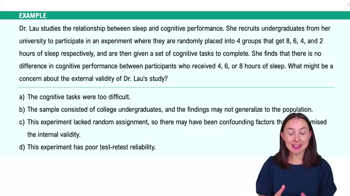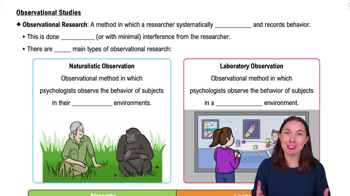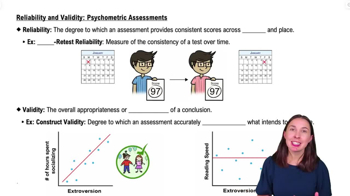Table of contents
- 1. Introduction to Psychology1h 43m
- 2. Psychology Research2h 20m
- 3. Biological Psychology2h 41m
- 4. Sensation and Perception28m
- 5. Consciousness and Sleep32m
- 6. Learning41m
- 7. Memory34m
- 8. Cognition37m
- 9. Emotion and Motivation35m
- 10. Developmental Psychology33m
- 11. Personality48m
- 12. Social Psychology41m
- 13. Stress and Health41m
- 14. Psychological Disorders44m
- 15. Treatment47m
2. Psychology Research
Intro to Research Methods
Struggling with Psychology?
Join thousands of students who trust us to help them ace their exams!Watch the first videoMultiple Choice
Connie has a chance to interview for a promotion at work. She is sure she will do poorly, so she decides against it. Albert Bandura would say that Connie has
A
a neurotic personality.
B
low self-efficacy.
C
an external locus of control.
D
a negative self-concept.
 Verified step by step guidance
Verified step by step guidance1
Understand the concept of self-efficacy: Albert Bandura introduced the concept of self-efficacy, which refers to an individual's belief in their ability to succeed in specific situations or accomplish a task.
Identify the key behavior: Connie decides against interviewing for a promotion because she believes she will do poorly.
Relate behavior to self-efficacy: Connie's decision is based on her belief in her inability to perform well, which indicates low self-efficacy.
Differentiate from other concepts: A neurotic personality, external locus of control, and negative self-concept are different psychological concepts that do not directly explain Connie's behavior in this context.
Conclude with Bandura's perspective: According to Bandura, Connie's decision not to interview is a result of low self-efficacy, as she doubts her capability to succeed in the interview.

 1:46m
1:46mWatch next
Master Roadmap of the Lesson with a bite sized video explanation from Hannah Gordils
Start learningRelated Videos
Related Practice










